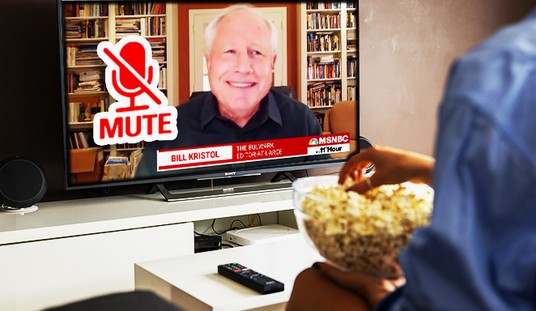Oh, the tale of Cracker Barrel. One could not buy the kind of publicity the brand is getting right now as it rides a wave of viral attention not seen since the Coldplay “cheating couple” saga earlier this year. Analysts have already offered sharp takes on what went wrong: activist investors pushing an agenda, a board asleep at the wheel, and a CEO in over her head. To their work I would add this: Cracker Barrel’s misadventure is not just a corporate stumble. It is a reminder of a universal truth that human organizations naturally drift leftward. Without constant re-grounding, they drift from their founding purpose, and turn against the principles on which they were founded.
The list of corporations and consumer brands that jumped headlong into faddish activism is obscenely long. In just the past year, Bud Light’s implosion and Jaguar’s tone-deaf campaign proved what should have been obvious, that vying for high scores on destructive social score indexes is not a responsible growth strategy. Yet for years, too many executives treated progressive mantras as if they were delivered on engraved tablets from on high. They were deceived by so-called ‘experts’ who preached that millennials would only part with their dollars if a rainbow flag or ‘in this house’ label was slapped on the product or storefront. Consumers were left with little choice but to feel like every shopping trip was an involuntary donation to Bolshevik Revolution 2.0. As the arrogance of all involved collides with reality, we are reminded yet again that pride goes before the fall.
As the tide turns, it’s becoming clear that the myth of woke financial supremacy theory is built on quicksand. Leaders like Robby Starbuck have played a major role in pulling companies back from the brink—Tractor Supply and Pepsi among them. Increasingly, many Fortune 500 firms are remembering that Americans value quality, reliability, and trust more than brand activism. Into this environment of cultural correction marched Cracker Barrel’s current management, apparently believing it financially prudent to make an abrupt turn from the brand character that its predominantly conservative base has loved for decades. The results were predictably disastrous: a now-abandoned attempt to emaciate the beloved and time-tested brand logo, sponsorship of an all-ages “pride” event in Nashville, and a “Front Porch to Pride” initiative that nobody asked for.
Among the discussion, some asked why a change of sign equates to wokening of the organization. The answer is in the tension between conserving and progressing. The legacy sign broadcasts the company’s history and legacy. The ill-fated new variant is an impersonal marker. This conundrum brings to mind an architectural analogy.
When in Topeka, Kansas, I cannot help but look at the glorious state capitol. Construction on this neo-classical structure began in 1866. Like great halls of long ago, it points to something higher. Standing under the rotunda, one cannot help but feel small. That’s the point. As in the great cathedrals of Europe, the structure’s grandeur aims to draw your attention to something higher than the individual self. Across the street from this masterpiece stands the Kansas Judicial Center built a century later. It’s a brutalist 1970s-era assault on the senses that would be perfectly at home next to the J. Edgar Hoover building in Washington, D.C. Different times captured different values. The capitol inspires. In sharp contrast, the brutalist cement block across the street remains an eyesore, almost indistinguishable from its parking lot. The former inspires. The latter merely exists.
The same story plays out in corporate branding. Remember the McDonald's of the 80s and 90s. McDonald’s once constructed colorful buildings with angular rooftops accentuated with lighting that evoked the fries served within. Likewise, the Taco Bells I grew up with reflected historic mission-style architecture. Today, both companies exist among us in structures resembling sterile boxes with the warmth of a hospital waiting room. We order from impersonal kiosks instead of fellow human beings. The process and environments are cold, aimed to get you in and out as soon as possible. The experience is gone. ‘Order, Swallow, Leave’ might as well be posted on the wall as a mission statement. Consultants call this “refresh.” In truth, it’s the slow removal of soul.
The natural tendency of human organizations is to lose their way, to drift from purpose, to progress. This competes with those who want to conserve what made something great to begin with, hence the term conservative. The latter always has the uphill battle. This pattern is bigger than architecture and logos. Many hospitals founded long ago as Christian ministries now embrace abortion and “gender medicine.” Universities like Harvard and Georgetown, founded to train clergy, now sneer at church teaching. Even many churches themselves have collapsed into mimicry of the culture they were meant to transform. The culprit is always the same: leaders without roots, chasing fashion instead of stewarding what was entrusted to them. Some organizations drift slowly over time as they pass from one owner or ruler to another. Others are corrupted in a single generation. Those who hold the line do so through a lineage that remains steadfastly committed to remain anchored in truth.
Fortunately Americans are proving tired of the antics of moral revolutionaries. We are weary of brand managers erasing beloved icons and selling us ideology instead of service. We would do well to take a step further and force a deep clean at Cracker Barrel and beyond, striking every hint of woke worship from every level of the company and broader corporate scene. A full recovery there will require a housecleaning at every level to sweep out the obsession with trends and return to the timeless values of hospitality, family, and Americana.
The cultural revolutionaries have been hard at work for well over a century now, the poisoned fruits of their labors becoming apparent in every direction. Let us commit to working even harder to reclaim the great American brands and institutions that can be salvaged, and–when necessary—build new organizations to replace those determined to prioritize the promulgation of corrupt ideologies over providing honorable service to consumers.















Join the conversation as a VIP Member